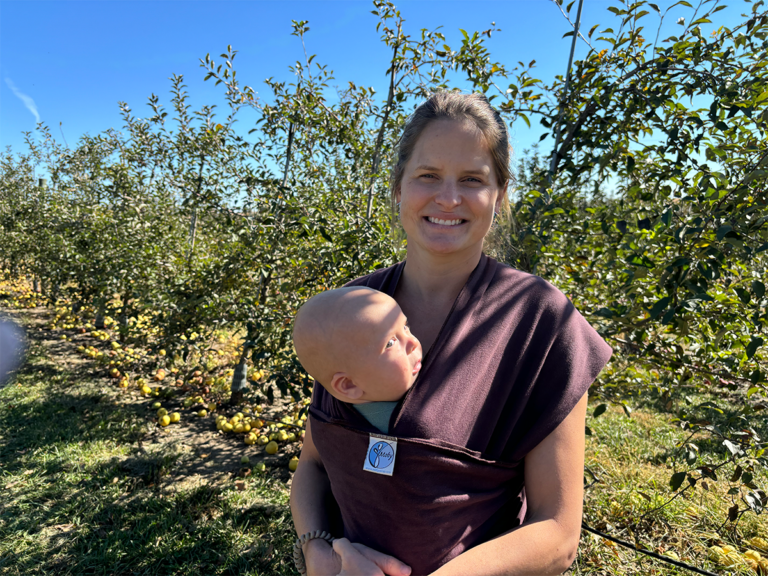With fall in full swing, crowds of people are hitting up Curtis Apple Orchard and Pumpkin Patch in Champaign to enjoy the sight of thousands of lush apple trees. But some apple orchards in central Illinois aren’t as lucky.
This summer, three broods of cicadas emerged at the same time in parts of Illinois. Cicadas lay their eggs in the bark of small trees, which can damage or stunt their growth. The volume of cicadas varied from town to town.
Champaign only experienced seasonal cicadas, not the 17-year and 13-year broods that emerged in other towns, said Manager Rachel Coventry.
“There was supposed to be like just gobs and gobs of cicadas,” she said. “We didn’t see a single one, we had the regular annual cicadas, which we’re used to, and they don’t tend to cause too much harm.”
Coventry said an apple orchard cannot do much to prevent cicadas from damaging small trees.
“We plant several thousand new trees, so we were a little bit concerned, but there’s nothing really we could do to prevent it. We’re not going to put mesh on all our trees or anything like that when there’s thousands of them,” Coventry said.
It’s a different story at Okaw Valley Apple Orchards, just 50 miles south of Champaign in Sullivan. Owner Mike Mitchell said that taking preventative measures to protect the apple trees, such as spraying insecticides, wouldn’t be enough for the sheer volume of the cicadas.
“Because there were so many of them that came out of the ground and populated, what you did [to prevent damage] didn’t matter anyway,” Mitchell said. “They all grew and laid their eggs and came out with a vengeance.”
He said that cicadas split every single limb that was half an inch or less in diameter — and this severely impacted the growth of the newly planted apple trees.
“They’ll grow four or five feet in the first year and then produce apples the second year,” Mitchell said. “The trees that should be nine, ten feet tall right now are two feet tall.”
Mitchell said that when a tree gets stressed out, it produces higher volumes of seeds faster in order to reproduce more offspring. He said that all of the damage caused by the cicadas caused a bloom, which normally happens in March, to happen in August.
“There with tiny, little golf-bal- sized apples on them that got on this year’s wood, that bloomed and pollinated,” he said. “I never seen that before, ever.”
Mitchell said he’s optimistic that next year will be a better harvest, because the trees can repair themselves and he has a strong foundation of newly planted trees.
“This year was going to be the year that I had a lot of trees in the ground that were maturing and a good bloom and a good fruit set,” Mitchell said. “Next year it’ll be the year with a good crop.”

